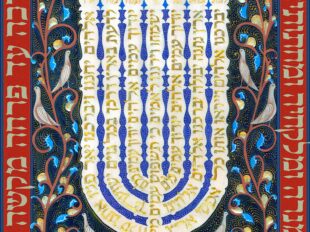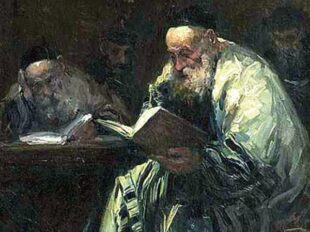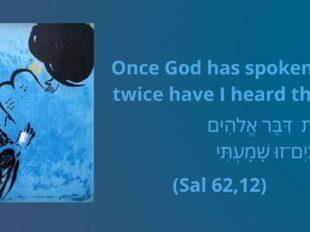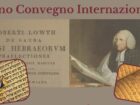Series directed by Roland Meynet and Pietro Bovati
Although its roots date back at least to the nineteenth century, the so-called “rhetorical analysis” represents a new approach to biblical texts. Leaving aside the history of the formation of the text and the problem of its sources – always hypothetical anyway -, rhetorical analysis attempts to highlight the composition of the text in its final state, as it has been transmitted to us.
The first assumption of rhetorical analysis is that the biblical texts, despite the vicissitudes of their manuscript transmission, are not merely a collection of oral traditions, much less a compilation of unconnected passages, but were composed with great care. Biblical authors are not merely editors; they are authors, in the true sense of the word.
The second assumption of the methodology is that the biblical texts are governed by a specific rhetoric. The books written in Hebrew were composed, not according to the rules of Greco-Latin rhetoric, but following the laws, always better known, of Hebrew, or more broadly Semitic, rhetoric; the Greek books of the First Testament, as well as those of the New Testament, though influenced by Hellenism, are governed more by Hebrew rhetoric than by classical Greco-Latin rhetoric. Therefore, one can rightly speak, not only of Jewish rhetoric, but of “biblical rhetoric.”
The third methodological assumption of rhetorical analysis is that the form of the text is the main door that opens access to meaning. It is true that composition does not allow us to grasp, directly and automatically, the meaning. However, the formal analysis allows to make a reasoned division of the text, to define in a more objective way the context, to highlight the organization of the work at different levels of its architecture; for this reason, the conditions are outlined that allow to undertake, on a less subjective and fragmentary basis, the work of interpretation, the purpose of any scientific research, which intends to respect, through its object, the Subject who speaks.
- Germano Lori, Il discorso della montagna, dono del Padre (Mt 5,1-8,1), ReBib 18, EDB, Bologna 2013 (262 p.).
- Roland Meynet, La lettera ai Galati, ReBib 17, EDB, Bologna 2012 (247 p.).
- Roland Meynet, Jacek Oniszczuk, ed., Retorica biblica e semitica 2. Atti del secondo convegno RBS, ReBib 16, EDB, Bologna 2011 (326 p.).
- Jacek Oniszczuk, La Passione del Signore secondo Giovanni (Gv 18-19), ReBib 15, EDB, Bologna 2011 (256 p.)
- Albert Vanhoye, L’Epistola agli Ebrei. «Un sacerdote diverso», ReBib 14, EDB, Bologna 2010 (358 p.)
- Roland Meynet – Jacek Oniszczuk, ed., Retorica biblica e semitica 1. Atti del primo convegno RBS, ReBib 12, EDB, Bologna 2009 (318 p.).
- Roland Meynet, Trattato di retorica biblica, ReBib 10, EDB, Bologna 2008 (716 p.).
- Roland Meynet, Il vangelo secondo Luca. Analisi retorica, seconda edizione, ReBib 7, EDB, Bologna 2003 (989 p.).
- Tomasz Kot, La fede, via della vita. Composizione e interpretazione della lettera di Giacomo, ReBib 6, EDB, Bologna 2003 (299 p.).
- Roland Meynet, La Pasqua del Signore. Testamento, processo, esecuzione e risurrezione di Gesù nei vangeli sinottici, ReBib 5, EDB, Bologna 2002 (495 p.).
- Roland Meynet, Una nuova introduzione ai vangeli sinottici, ReBib 4, EDB, Bologna 2001 (366 p.) esaurito.
- Pietro Bovati – R. Meynet, Il libro del profeta Amos, ReBib 2, Edizioni Dehoniane, Roma 1995 (473 p.).
- Roland Meynet, Il vangelo secondo Luca, ReBib 1, Edizioni Dehoniane, Roma 1994 (756 p.) esaurito.
- Roland Meynet, ‘E ora scrivete per voi questo cantico’. Introduzione pratica all’analisi retorica, 1. Detti e proverbi, ReBib 3, Edizioni Dehoniane, Roma 1996 (122 p.).






